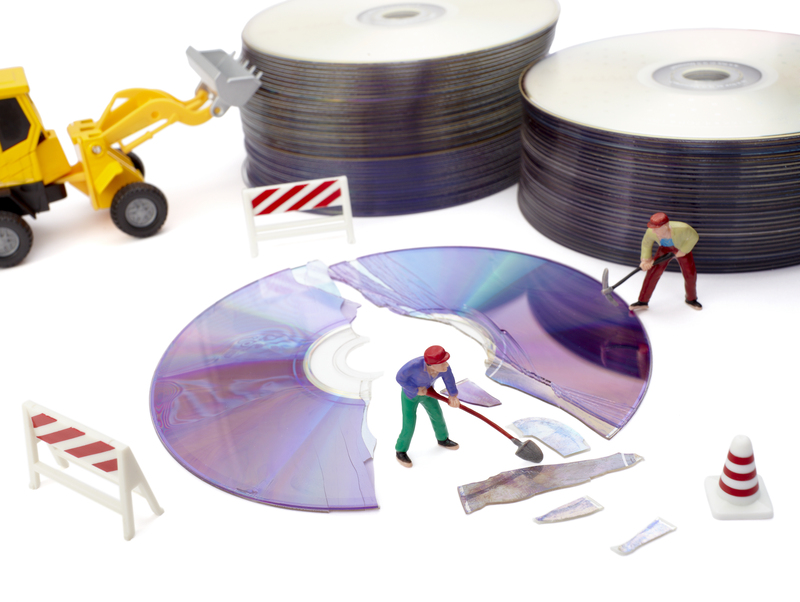The impact of technology on achieving a zero waste society
Posted on 12/02/2024
Introduction
Technology has become an integral part of our daily lives, making tasks easier and more efficient. However, as technology continues to advance, it also has a significant impact on the environment. One of the biggest challenges faced by society today is the issue of waste management. With a growing population and increasing consumption patterns, traditional waste management methods simply cannot keep up. This is where technology comes in - its innovative solutions are paving the way towards achieving a zero waste society. In this article, we will discuss the impact of technology on achieving this goal.

How Technology is Changing Waste Management
The traditional methods of waste management have proven to be insufficient in dealing with the ever-increasing amount of waste produced every day. Landfills are overflowing, oceans are polluted with plastic waste, and incineration releases harmful toxins into the air. This is where technology steps in, offering solutions that not only manage waste effectively but also reduce and prevent it.
Waste-to-Energy Technology
One way technology is helping achieve a zero waste society is through waste-to-energy plants. These facilities use various processes such as gasification and pyrolysis to convert non-recyclable waste into energy sources like electricity and heat. Not only does this reduce the amount of waste that ends up in landfills or oceans, but it also provides a renewable source of energy, reducing our dependence on fossil fuels.
Recycling Innovations
With the help of technology, recycling has become more efficient and cost-effective. Advanced sorting systems using sensors and robots can now identify recyclable materials quickly and accurately from a mix of waste. This reduces the burden on humans for manual sorting and ensures a higher rate of recycling. Additionally, there have been several innovations in recycling techniques, such as chemical recycling, which can turn plastic back into its basic components to make new materials.
Smart Bins and Waste Management Apps
The use of smart bins equipped with sensors and internet connectivity has revolutionized waste management. These bins can monitor their own fill levels and send real-time data to waste management companies, enabling them to optimize collection routes and reduce unnecessary trips. Furthermore, the development of waste management apps has made it easier for individuals to track their waste disposal habits and learn about proper waste segregation and disposal methods.
Pros and Cons
As with any technology, there are both advantages and disadvantages in its application for waste management.
Pros:
- Efficient and cost-effective waste management
- Reduced reliance on non-renewable energy sources
- Increased recycling rates
- Improved public awareness and education on waste management
Cons:
- High initial costs for implementing new technologies
- Potential environmental impacts from certain processes (e.g. emissions from waste-to-energy plants)
- Technological advancements may result in job losses in traditional waste management industries
- Lack of accessibility to these technologies in developing countries
Tips for Achieving a Zero Waste Society with Technology
1. Embrace sustainable practices in your everyday life - reduce, reuse, recycle.
2. Educate yourself and others on proper waste disposal methods.
3. Use technology to your advantage by utilizing waste management apps and participating in community recycling programs.
4. Support businesses that prioritize environmentally-friendly practices.
5. Advocate for government policies that promote the use of technology for sustainable waste management.

Takeaways
- Technology offers innovative solutions for waste management, helping achieve a zero waste society.
- Waste-to-energy plants, recycling advancements, and smart bins are examples of how technology is changing waste management.
- There are pros and cons to using technology for waste management - it is important to consider the potential impacts.
- We can all contribute to a zero waste society by adopting sustainable practices and utilizing technology in our daily lives.
Conclusion
In conclusion, technology has a significant impact on achieving a zero waste society. It offers solutions that not only manage waste effectively but also reduce and prevent it. However, it is crucial to use these technologies responsibly and consider their long-term effects on the environment. By working together and leveraging the power of technology, we can move towards a more sustainable future with minimal waste. Let us embrace these advancements and do our part in creating a cleaner and healthier planet for future generations.



